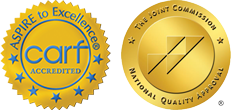Treatment for meth use disorder or methamphetamine addiction can be challenging. However, given the risks associated with meth use, quitting is worth the effort. It can be a fantastic idea to ask for assistance from others through counseling, support groups, or both for you or a meth addict family member.
People can associate with others who have shared challenges, histories, and addictions in support groups for all sorts of addictions. Drug and alcohol substance use groups can be beneficial whether you want to join one as a first step in your recovery from an addiction to drugs or alcohol or if you want to do so to stay clean and support newer group members.
There are countless caring support groups scattered across the country that you may look into. Many online communities will be pleased to have you as a member, so those who reside in rural locations or would rather stay at home to seek assistance from peers can do so. Regardless of your circumstances or history, a community is ready to support you in leading a happy, healthy, sober life. There are general groups for any form of addiction, for specific substance recoveries, for those who are religious or non-religious, and more.
Meth support groups have various components, each crucial for the sustained meth recovery process. Meetings, sponsorship, and step work are the three most critical components. Other aspects include fellowship and service.
- Meetings. In meetings, the recovery program is covered. Every meeting is a secure space where you can share your experiences, hear from other members, and meet other addicts in recovery. The sponsors of these meetings are crucial. They offer advice and respond to inquiries posed about the initiative.
- Sponsorships. Every person seeking recovery talks to others about his or her experiences. This is made explicit via gatherings and in-person interactions referred to as sponsorships.
- Service. Any service is not required to be provided. Providing refreshments during meetings or aiding in the venue’s cleanup can be a service. Another service possibility is serving as an officer or the meeting’s chairperson.
- Step-Work. Steps are actions that help an addict who has signed up for the program live a life without using crystal meth or other psychoactive drugs. A sponsor who offers advice and direction at each stage helps an addict complete the steps in order.
- Fellowship. Members converse informally about their experiences in a setting known as fellowship. Fellowships might take the form of sharing a meal following a meeting or activity or getting together for coffee.
Most meth support groups use a multi-step recovery program to aid addicts in quitting using meth and embracing a drug-free lifestyle. The steps address how individual interacts with themselves, their environment, and their spiritual side. The stages of a support group process are as follows:
- Acknowledging lack of control over the drug.
- Having faith that a superior force may help them recover and letting the higher power help them.
- Pondering and assessing one’s moral inventory.
- Demonstrating a desire to make amends with everyone.
- Experiencing a spiritual awakening and putting all the lessons acquired into practice.
In-person or online meetings, where addicts can connect with others and seek support on the road to sobriety, strengthen the recovery through these steps.
How do meth support groups help people?
Participating in meth support groups is a crucial part of the aftercare following a successful meth treatment program. Individuals in recovery can keep their commitment to their recovery, connect with others going through similar problems, and uphold long-term sobriety with the help of this sort of group therapy.
A support group is essential for facilitating the rehabilitation process. Individuals can reflect and think about various circumstances that contributed to their addiction and potential barriers to living a clean life and their remedies while working through the steps in the recovery plan.
It’s vital to remember that these support groups, whether they meet in person or online, view addiction as a chronic illness and think that individuals may change their behavioral patterns, primarily by embracing a higher power.
How effective are meth support groups?
There is some evidence based on meth recovery statistics to suggest that these recovery programs are effective at assisting people dealing with addiction to overcome it and recover from it, even though there is a huge shortage of quality research on the effectiveness of meth recovery programs due to the aspect of anonymity which is practiced during meetings.
Do you have a loved one struggling with addiction?
We know how hard that can be. Give us a call to find out what options you have.
The models used in these kinds of rehabilitation programs entail having someone who has made success in their recovery offer support and direction to someone who has just joined the group. Sponsors advise sponsees to maintain their fortitude and resolve while maintaining their attention on their recovery.
People frequently find that the support and inspiration they get are tremendously beneficial since it lifts their spirits and keeps them on track throughout their recovery. Meeting other people who are in recovery and improved recovery efficacy among persons who can exchange experiences and have support are significantly correlated.
The members’ exposure to social interaction is one of the critical elements for the success of meth support groups. People in recovery come into contact with others going through the same problems, with whom they can share experiences, techniques, and support.
Why should you attend support groups?
To effectively treat addiction, support groups are crucial since those struggling with the same issues may relate to one another’s experiences and offer encouragement as you work toward recovery.
Meetings address working through the recovery program while also allowing for personal experience sharing with other group members. This establishes a network of assistance for discussing issues that arose during use and analyzing various scenarios.
Being in touch with others in the sober community, where they may learn more about coping with the problems of substance misuse and new strategies to overcome them, makes staying sober easier and more bearable.
Common Support Groups
Seattle Area Narcotics Anonymous
If you or a family member is struggling with meth addiction, reach out to Discover Recovery in Washington State.





